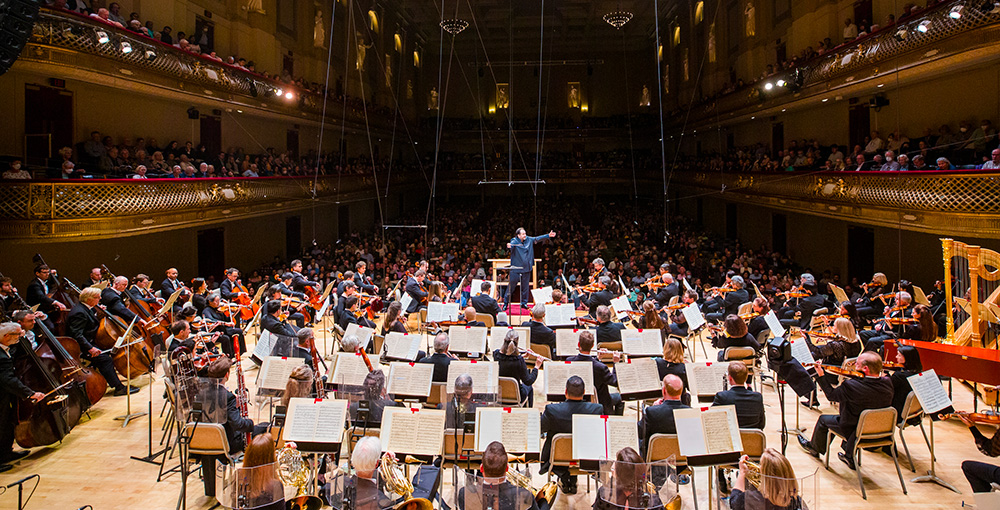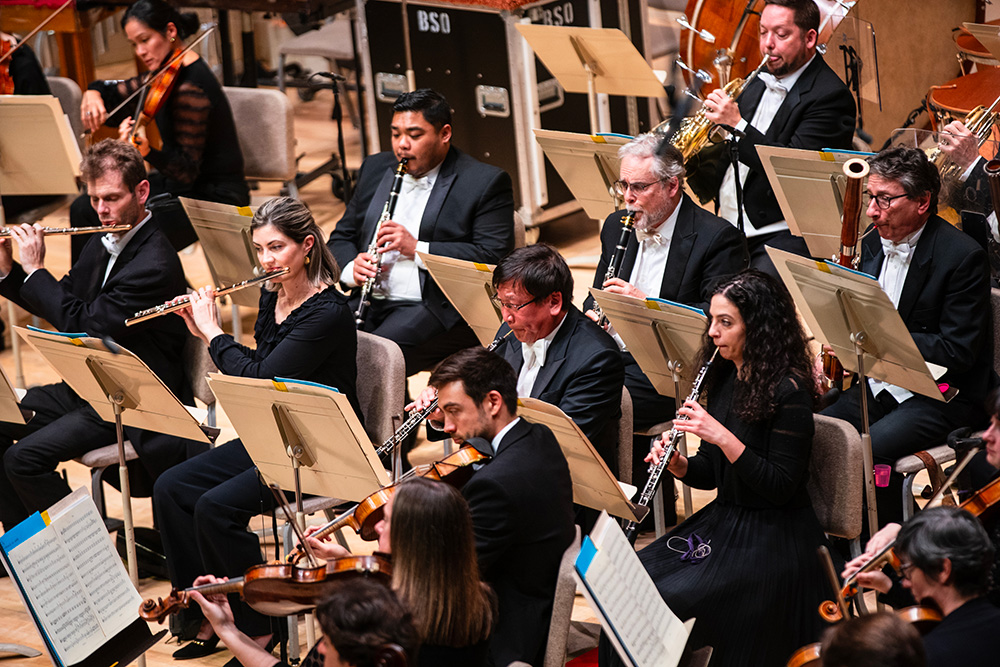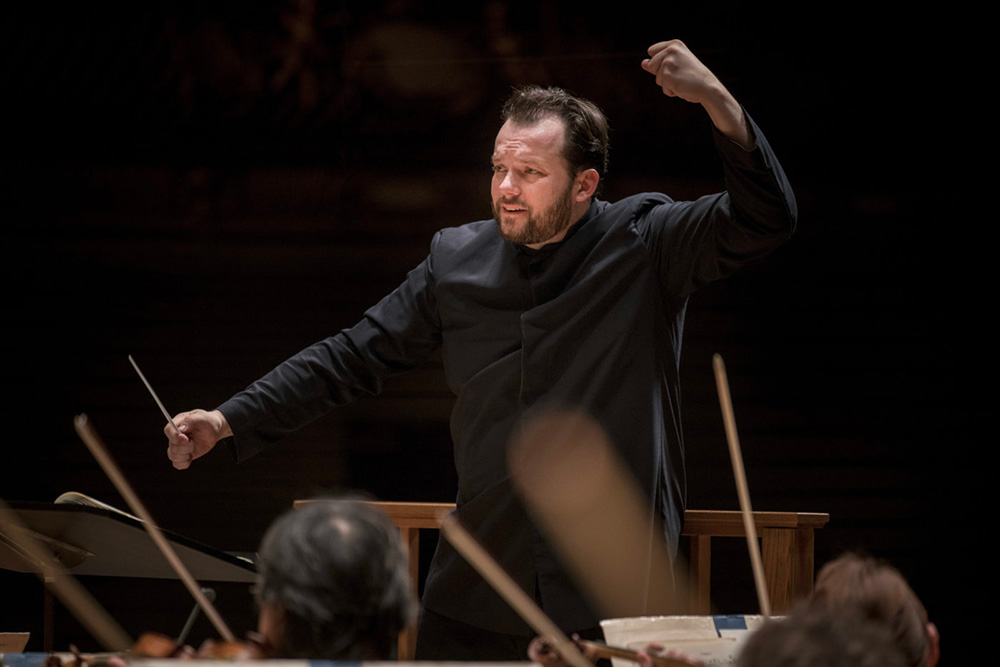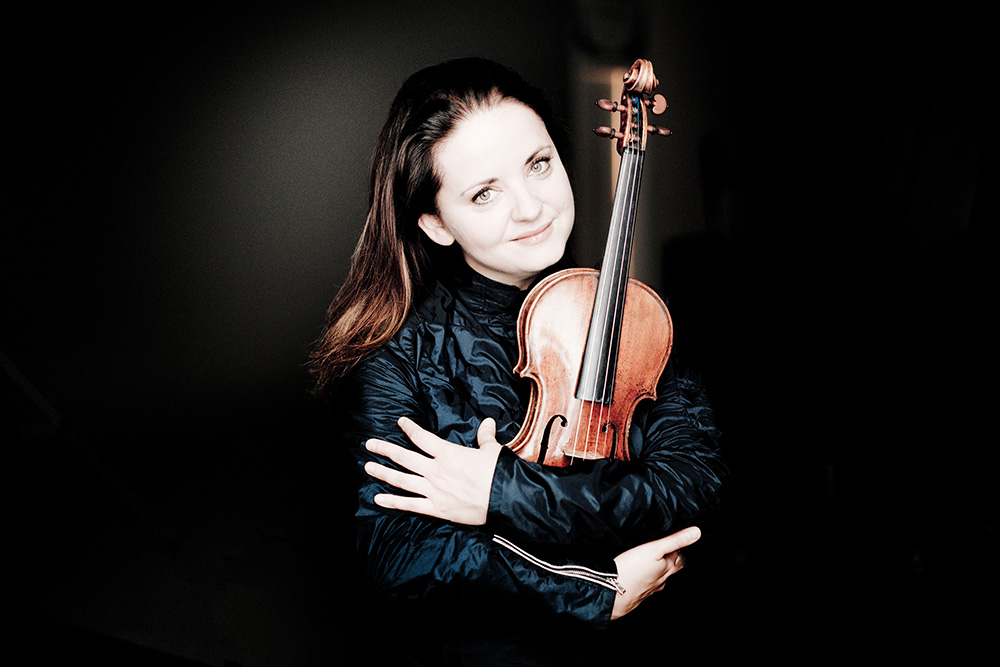Boston Symphony Orchestra
Main Partner and the Concert Partner

The concert is held under the auspices of the US Embassy in the Czech Republic.

The concert is held under the auspices of the Embassy of the Republic of Latvia in the Czech Republic.
Programme
- Dmitri Shostakovich: Concerto for Violin and Orchestra No. 1 in A minor Op. 77
- Dmitri Shostakovich: Symphony No. 11 in G minor Op. 103 "The Year 1905"
Performers
- Boston Symphony Orchestra
- Andris Nelsons – conductor
- Baiba Skride – violin
The “Big Five” – this is the traditional name given to the five historically most significant American orchestras, the second oldest of which, the Boston Symphony Orchestra (BSO), will be making its first appearance at the Prague Spring Festival in 2025. Under the baton of its current chief conductor, Andris Nelsons, the orchestra will perform two of Dmitri Shostakovich‘s (1906–1975) masterpieces in the year we will commemorate the fiftieth anniversary of his death. The soloist will be the outstanding violinist Baiba Skride, winner of the Queen Elisabeth Competition in Brussels and recipient of the ECHO Klassik award. Come and admire the beautiful sound of the BSO in the works of one of the greatest classical composers of the 20th century.

The Boston Symphony Orchestra, whose magnificent sound is known to many from the soundtracks of the Oscar-winning films Schindler’s List and Saving Private Ryan, was founded in 1881 by Henry Lee Higginson, a veteran of the American Civil War, businessman, and philanthropist. He was also a participant in the first transcontinental telephone conversation along with Thomas Watson, Alexander Bell, Theodore Vail, and Woodrow Wilson. This ensemble from the historical city in the State of Massachusetts, famous for the Boston Tea Party, Harvard University, and the Kennedy family, has become one of the world’s most revered orchestras over its nearly 150 years of existence. It has been led by legendary conductors such as Arthur Nikisch, Serge Koussevitzky, Charles Munch, and the recently deceased Seiji Ozawa. In the past decade, it has been shaped by Andris Nelsons, a native of Riga, Latvia, whom The Guardian described as “one of the most exciting and sought-after conductors working today”.

Nelsons first encountered the orchestra in the renowned Carnegie Hall in 2011, when he miraculously stepped in for the ill James Levine in Mahler’s demanding Symphony of a Thousand. He became the artistic director and chief conductor of the BSO three years later. Since 2018, he has also held the position of music director of the Leipzig Gewandhaus Orchestra. In addition, he regularly conducts other prestigious orchestras, including the Berlin and Vienna Philharmonics, with whom he performed at the closing concert of the Prague Spring in 2022. Dmitri Shostakovich’s music is particularly close to him and holds a central place in his work with the BSO. In 2023, he completed a complete recording of Shostakovich’s fifteen symphonies for Deutsche Grammophon with the orchestra. Together, they have already won three Grammy Awards for this project. Their performance of the Tenth Symphony was described by the British magazine Gramophone as “the most electrifying recording in almost half a century”, and the recording of Symphony No. 11, which will be performed at the Prague Spring, also received exceptional praise: “Thrilling music, thrillingly realised,” concluded Edward Seckerson in his review for Gramophone. Shostakovich gave this monumental work the subtitle The Year 1905, as it reflects the revolutionary events in Saint Petersburg at that time. This is why this symphony is sometimes referred to as “film score without the film”.

The violinist Baiba Skride is one of Nelsons’ particularly close artistic partners. Together with her compatriot, she recorded both of Shostakovich’s violin concertos with the BSO for the DG label (the release is planned for this year), and they regularly perform them on concert stages worldwide. When Baiba Skride made her debut in 2018 with the first of these concertos, which will also be performed at the Prague Spring, under Nelsons’ direction with the Berlin Philharmonic, it was a musical event of the year. “Death, desperation, anger and sarcasm – in the musical figure of the piercingly intense soloist Baiba Skride,” wrote the critic Felix Stephan about her performance with one of the world’s best orchestras in the Berliner Morgenpost.








